“Everything Changed Overnight.” WFP USA CEO Barron Segar on Navigating a Global Crisis
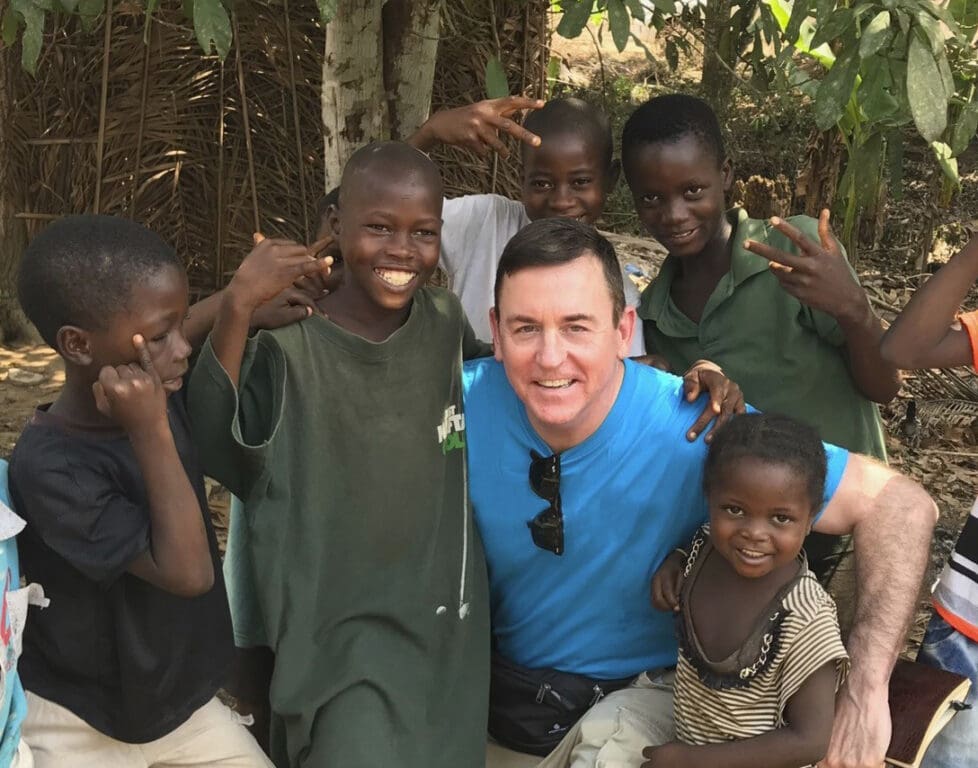
Three months after Barron Segar joined WFP USA as president and CEO, disaster struck. COVID-19 hit and uprooted life as we knew, forcing Barron and WFP USA leadership to reimagine many of their plans. Barron is no stranger to crisis – he has decades of experience navigating uncertain times, including fundraising during the Great Recession. His experience has shown through as he leads WFP USA through this current crisis, so we wanted to ask him just a little bit more on how he does it. We sat down with Barron to ask about his background, goals and leading in the time of COVID-19.
***
WFP USA: Thanks for joining us, Barron. Could you start by telling us a bit about where you’re from and how you ended up at World Food Program USA?
Barron: I think my giving back started a very early age. I grew up with a family that volunteered and gave back as much as they could. My parents led by example. It’s kind of funny, my mother used to tell me that, growing up, they gave my sisters much more allowance than me. I asked her why, and she said, “because we knew you would give yours away.” I think that was an indication I was born to work in this field.
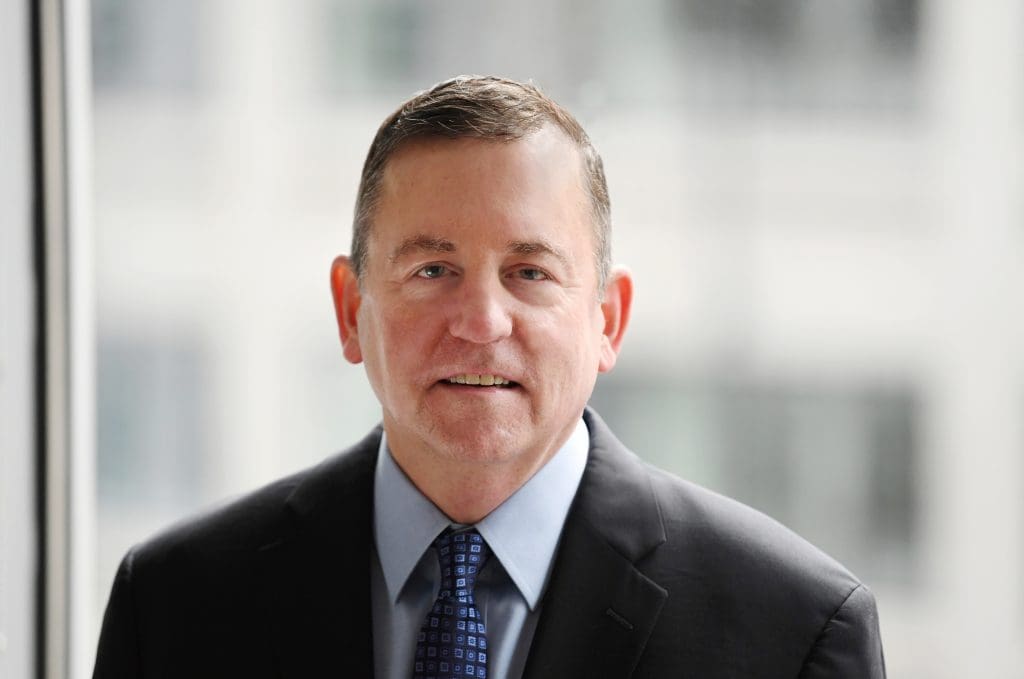
Barron Segar, WFP USA President and CEO
My first job was in public broadcasting. I then went to The Walton Foundation and joined UNICEF USA in 2000. I was there for 19 years, most recently as a member of the executive team with responsibility for budget strategies and the board. I also have the honor as serving as a founding member of the Elton John AIDS Foundation.
During my time with UNICEF USA, one of the most amazing experiences was traveling to the field, where I got to see the work of WFP. It’s hard to see the impact WFP and not come back changed. I visited a refugee camp in Ethiopia. I didn’t know what to expect. I will never forget the sheer humanity I saw, mothers and children, grandmothers who had walked for days – some who even traveled weeks. They fled to escape civil war, without any food or belongings, just to stay alive. When they reached the camp, they would go to nutrition stations. The children were so malnourished, close to death. But WFP fed them, and they came back to life so quickly.
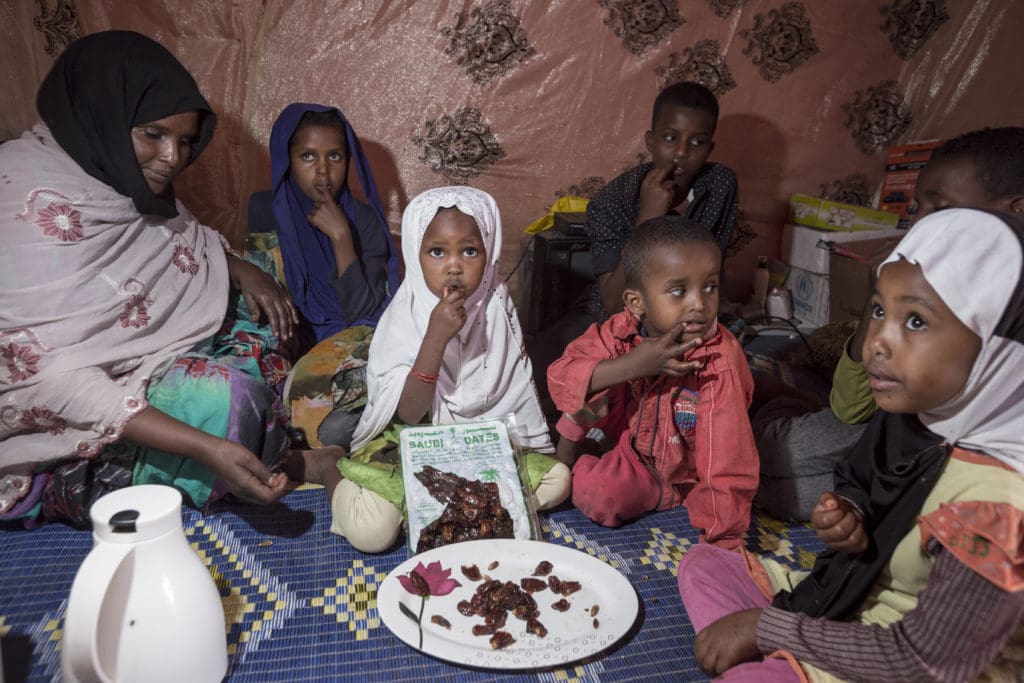
A family in Ethiopia eats dates provided by WFP in a refugee camp.
WFP USA: Before joining us, you clearly knew a bit about WFP and saw their work. Now that you’re here as CEO, has anything about WFP USA surprised you?
Barron: I think one surprise has been its efficiency and impact. As you know, WFP USA is a nonprofit that supports WFP. We’re here to make sure that we’re unlocking public and private support that allows WFP to implement the programs that can’t be implemented without enough funding.
Another surprise was when I learned that WFP is now feeding 100 million people – that’s an incredible number! And recently, I’ve learned how much food can help fight off diseases. Of course, I realized this to an extent, but not as much as I do now.
WFP USA: Speaking of diseases, when you joined, no one could have predicted a global pandemic would hit and uproot our lives.
You joined WFP USA on January 21 with certain expectations and plans – and then everything changed overnight. By March 13th, much of the nation was working from home. How has this impacted your goals and plans for WFP USA, at a time when our supported is needed more than ever?
Barron: Before this all began, I had a good 45 days in the office where I had an opportunity to meet with our board and all of our staff, including our incredible senior leadership team. I also had an opportunity to visit WFP headquarters in Rome, where I got to meet a lot of the WFP leadership charged with implementing programs that keep people alive. I learned about the innovative ideas they’re implementing, they’re partnerships and more information about the impact WFP has.
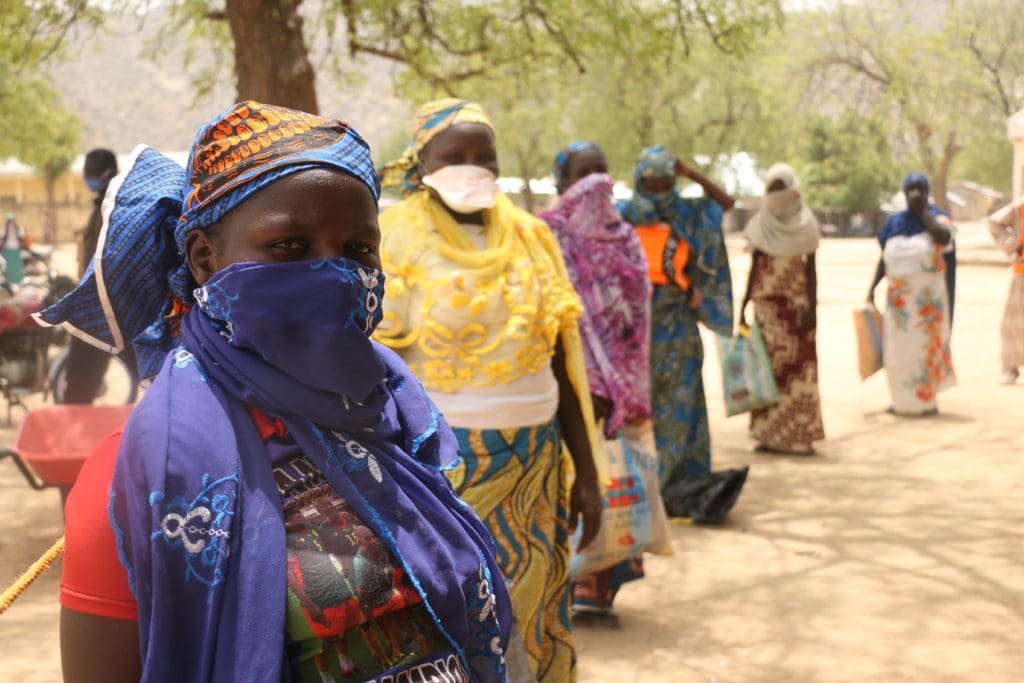
In Cameroon, mothers line up at the local school to receive take-home ration for their family. Across the world, millions of children are out of school and thus not receiving the school meals they rely on.
This enabled me to start thinking about a strategic plan for the next five years – a plan driven by our mission to save and change lives. Since COVID-19 hit, I haven’t changed WFP USA’s long-term goals too much. They were always driven by our mission to protect the most vulnerable and save and change lives. However, this pandemic is increasing the need across the globe. The number of hungry people is expected to double by 2020. So right now, I’m thinking about how we can add to the plan to protect even more lives than before.
WFP USA: COVID-19 is creating a financial crisis across the world, including here at home. The last big recession was in 2008. You were at UNICEF USA during this time, working in development. I’m curious, how does this crisis compare? And what learnings have you been able to apply to WFP USA fundraising and other operations as we face the economic consequences of COVID-19?
Barron: During the Great Recession in 2008 at UNICEF USA, we did see a decline in revenue. And that does worry me today. But I happen to believe, and I’ve talked to a lot of donors since I’ve been here, that the impact WFP will have on families globally is so extraordinary that they’re going to stay with us even during tough times. I’m really hoping that a lot of our donors will also choose to increase their giving as they see the incredible need unraveling worldwide.
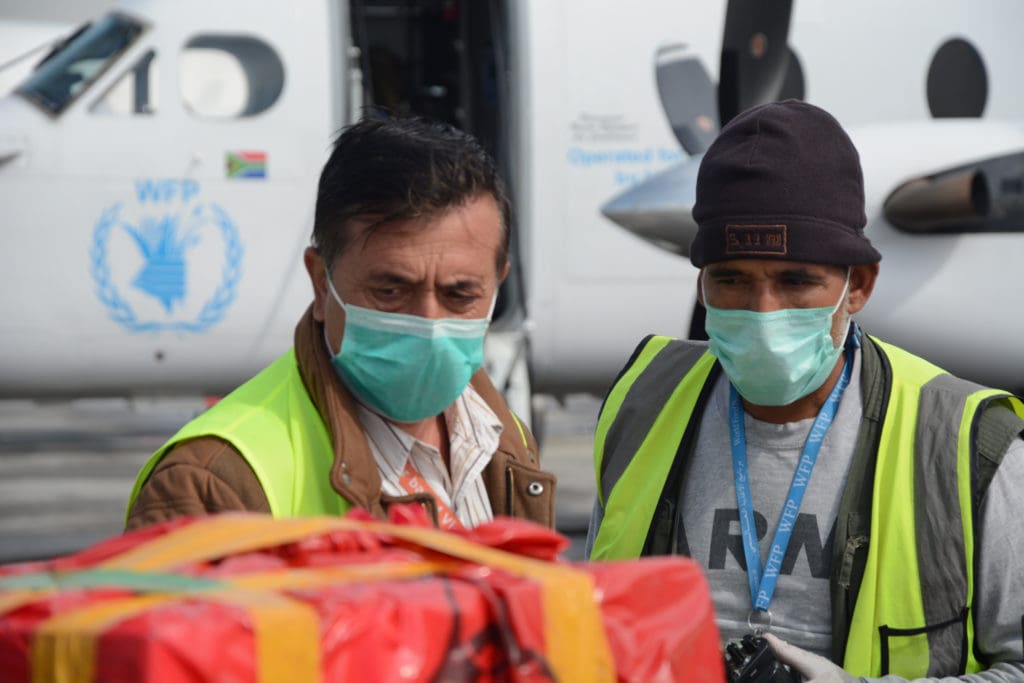
WFP mobilizing logistical response to coronavirus relief in Afghanistan.
Even though we did experience a decline in giving during 2008, what I learned was that if you’re consistently communicating the impact that donors are having on people’s lives, you’re going to be okay. But there are a lot of unknowns here. 2008 was very different. It started with a softness in the economy and then a market collapse – but it didn’t happen overnight, which is what it seems like happened with COVID-19. But WFP USA is a very efficient organization, and I know we’ll continue to save lives.
WFP USA: WFP serves 100 million people every year. How is this virus impacting them? And importantly, when there’s a potential recession and so much need here at home, why should people care about giving abroad?
Barron: That’s a really good question. We’ve never been through a pandemic in the United States that is scaring so many people. You have a lot of people worrying about their jobs, their health and the health of their family. But I do believe that there are many people who are worried about the health of the whole world; they’re worried about what’s happening to the most vulnerable in this pandemic.
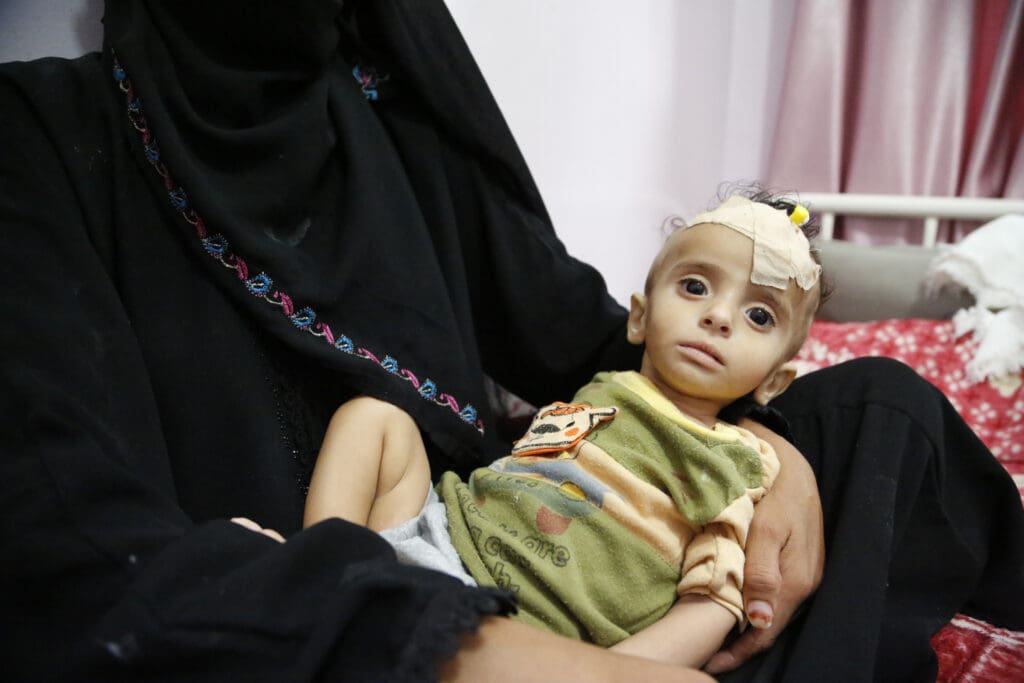
A little girl suffering from malnutrition in Yemen, a nation already facing famine.
Millions of people globally suffer from malnutrition. It’s a condition that makes people vulnerable to any disease. In Africa, for example 20 percent of the population suffers from hunger and malnutrition. And a lot of African countries have weak health systems to support recovery. So, WFP needs to make sure it’s nourishing people so they can protect themselves from this pandemic.
And then there’s the economic impact – it could kill more people than the virus itself. Yes, the U.S. is threatened with recession, but the recession will hit developing countries even harder. Many of these countries don’t have social safety nets like here in the U.S., so people have to rely on WFP to survive. It already serves 100 million people a year, and I can’t stress enough how many more people will be in need because of this crisis. COVID-19 will push millions into poverty. It’s threatening a hunger pandemic.
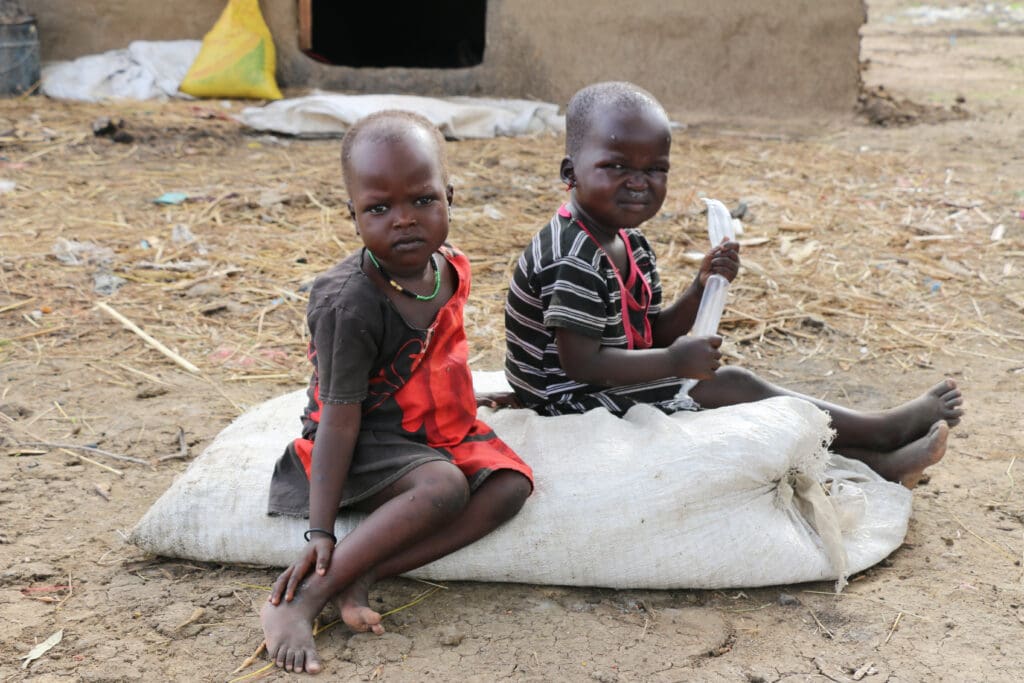
Children with a bag of WFP-provided food in South Sudan. Before COVID-19, 7.5 million people in the country were hungry. The pandemic is on track to make the situation even worse.
I know we’re looking at a very tough economic time here in the U.S., but we still desperately need your support, because without it, people will die. So, I can only hope that in this time of dire need Americans will realize how critical WFP is and that we need their support more than ever before. COVID-19 poses a huge problem, but together, we can solve it.
WFP USA: Yes, Americans are historically very generous, even in hard times. But you know, the threat of recession is very real for some people right now. What would you say to people who want to help, but feel like they don’t have enough money to make a difference?
Barron: You absolutely don’t have to give a lot of money to make a big impact by supporting WFP USA. Whatever your comfort in giving, we will leverage it to help save a life. One of the things that also impressed me about WFP about was its cost effectiveness. It’s incredibly efficient to feed a family. Just 50 cents can feed a child for a day, and $75 can feed an entire family for a month.
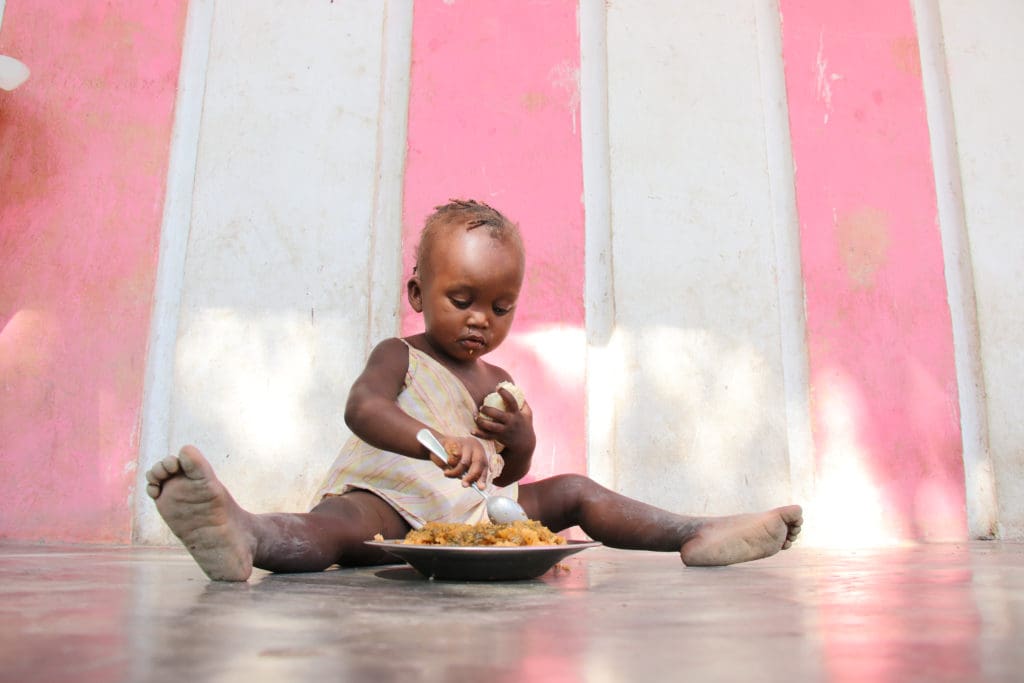
A child in Haiti eats a meal made with WFP-provided food.
When we think of the word philanthropist, we often think about a billionaire giving millions away. But a philanthropist is anyone who gives – it is not defined by the amount you give. Whether you give $10,000 or $10, you can be a philanthropist. And with WFP, a small gift goes a long way. What better investment can you make than one in saving lives.
WPF USA: That’s true. Every dollar – every cent – makes a difference. And you can easily donate with just a tap of your finger through WFP’s ShareTheMeal app. So, we encourage everyone to download it from your app store now.
Before we sign off, Barron, is there anything else you want people to know?
Barron: Yes, actually. I love reading and was recently reading an op-ed by Bill Gates about the power of philanthropy. He said that years of science and data have proven that as voluntary support increases, deaths among vulnerable people decrease.
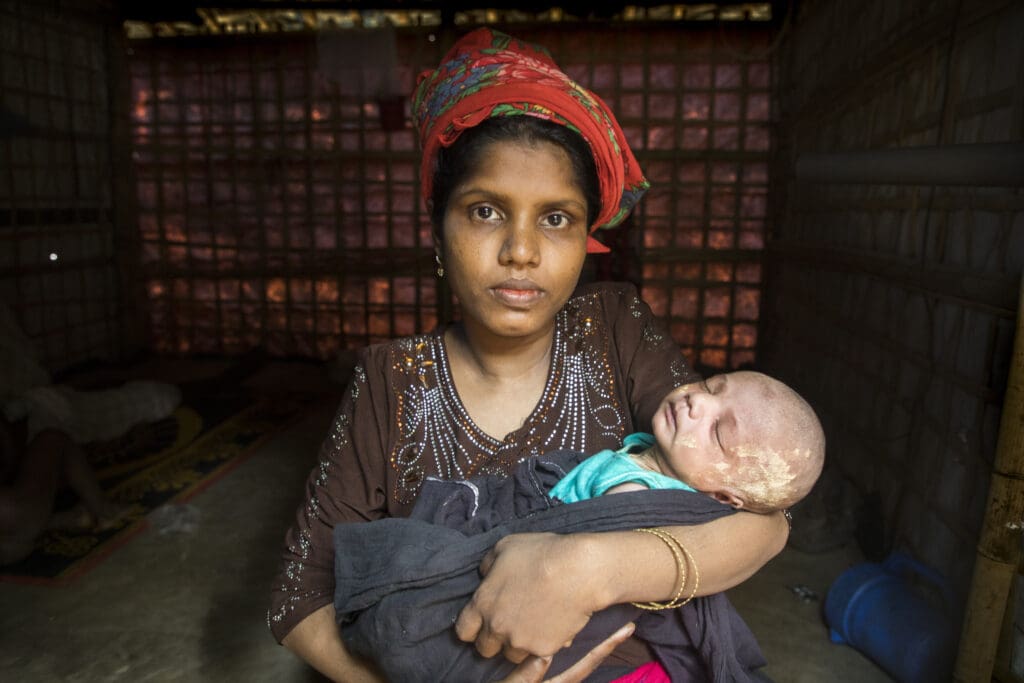
A Rohingya mother and her infant living in Cox’s Bazar – the largest refugee camp in the world.
So, my call to action is please be as philanthropic as you can. We don’t decide where we’re born. People don’t decide to be born into poverty and war, but they are – and it’s really difficult to survive those situations. Because of that, they need help from WFP.
So please don’t forget about them, the people who are doing everything they can to feed their families, but still don’t have enough simply because of where they were born. No one deserves to go hungry. That’s why I’m asking every single American to support WFP. We need your help now more than ever – because with this pandemic, the vulnerable are going to suffer the most. So please, find a way to help. Lend you philanthropy. Lend your voice. We need you.




